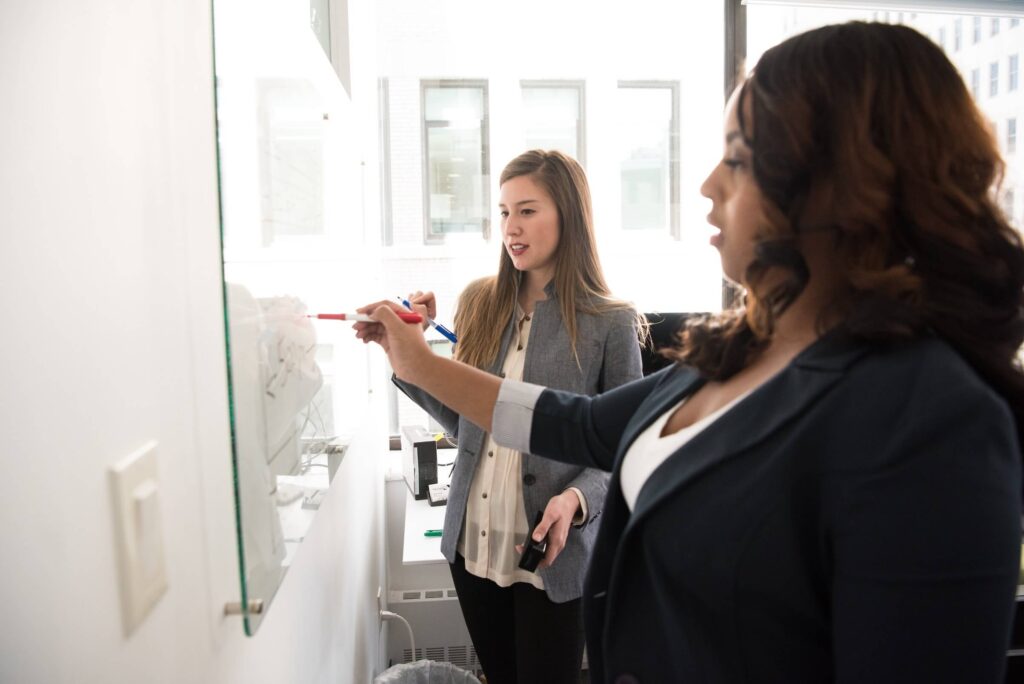Scaling Up! And the challenges that it brings. This is the final article in the Peer Learning Framework. Here’re some of the issues we’ve run into and how to deal with them.
Hundreds of classes — oh, my!
Great, now you have hundreds, even thousands of events. Good problem to have. But, it’s still a problem.
You set to help your people discover relevant classes so they can have right skills at the right time. Will dozens of Android classes, this is hardly helpful. Nobody is clear what is for whom. At some point, there’s more noise than signal.
We faced this very problem and chose to organize the events into event types. Here’re some of the types we came up with:
- Overviews
- A Taste Of…
- Essentials
- Bootcamps
- …at Your Organization
- War Stories
- Fireside Chats
- Hackathons
Think of these as mini brands that quickly tell your people what to expect from an event. Consistent naming will remove confusion and allow you to scale to hundreds of events.
Hundreds of presenters — ouch!
Everybody wants to teach! Yay, achievement unlocked! But, how do you ensure quality? How do you level up your presenters?
Keep measuring. Event feedback will tell you where to look for issues. Look for classes that have poor feedback — or no feedback at all. Double-click there. We set up automatic notifications for events with feedback outside some threshold.
Instructor meetups can be useful. We ran a monthly meetup where experts who teach would come together and compare notes on what works. It would be an hour or two over lunch and the topics included many from this list. The goal was to help them become better presenters.
Remote offices as first-class citizens
Your company is probably distributed with offices in various places. And your training offerings are likely lopsided to HQ. How do you make the remote folks feel like first-class citizens?
Hybrid classes are tough. Sure you can turn on your VC system and allow remote folks to join in a physical class. But, that usually ends up being a poor experience for them. Presenters often forget the people who dialed in.
Online-only classes work better. You can setup your popular offerings to only run online. So, everyone is equal and presenters know how to keep them engaged. Schedule these classes so the timing is ergonomic to people in various time zones.
See how PlusPlus can help you manage your online classes better and easily accessible to your team.
Create Ambassadors! For larger remote offices, we’d enlist local people there who would be our ambassadors. They would be our eyes and ears in term of what local population needs. An ambassador could be the local office manager.
Fly, fly away! Sometimes it makes sense to send an expert to a remote office to present one or more classes. But make sure you line up classes that are relevant to local people.
Make sure they are well promoted and relatively full. As a bonus, if one expert can teach a few classes back-to-back, getting them to travel pays off. Plus, it may be a nice perk for experts.
See how Uber scales remote engineering onboarding globally.
Anytime/Anywhere learning
The promise of your training program should be that your people have the rights skills at the right time. But, what happens when there is no class scheduled for the skills they need right away.
Build a video library. You can record your popular classes and make them available instead of live events. This usually works well. Just make sure the videos are easily discoverable and accessible.
Documentation is the holy grail! In the perfect world, your internal internal systems have proper and up-to-date docs. This is hard to pull off for things that are in flux. Look for more stable systems as good candidates for documentation.
Engineers as Leaders
So far, we’ve been discussing how to get engineers skills so they’re not blocked. But what about engineers who want to go beyond their call of duty and make a real difference? How do we enable them to become leaders? Note that we’re not talking about making them into managers necessarily. That problem is well understood and often well solved by HR.
Forums: peer coaching group. A forum is a group of about seven members who are peers. Members meet monthly. They have a structured way to share their experiences and learn from one another. Forums are confidential, self-organizing groups. More on Forums.
Twig, Flip, Edge. The goal is to wake up leadership thinking in promising engineers. Some companies do that via special programs. Google has Edge, Facebook has Flip, and at Twitter, we’ve created Twig. It was a by-invitation program that we usually held offsite over a couple of days. Attendees practice simulations to experience what leading a change looks like.
As you scale up your learning program, you’ll run into issues. These are good problems to have. Here, we’ve outlined a few cases that may be helpful. Keep measuring what works, empathize with your people and experiment. You’ll create something new. Something better. Keep sharpening your saw.






